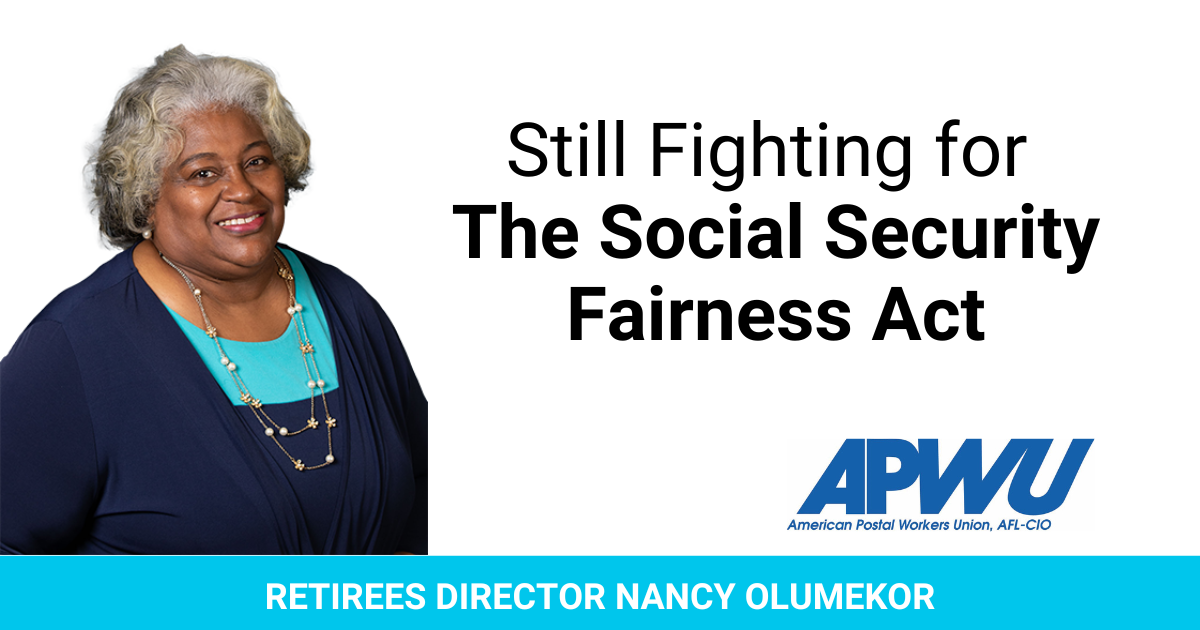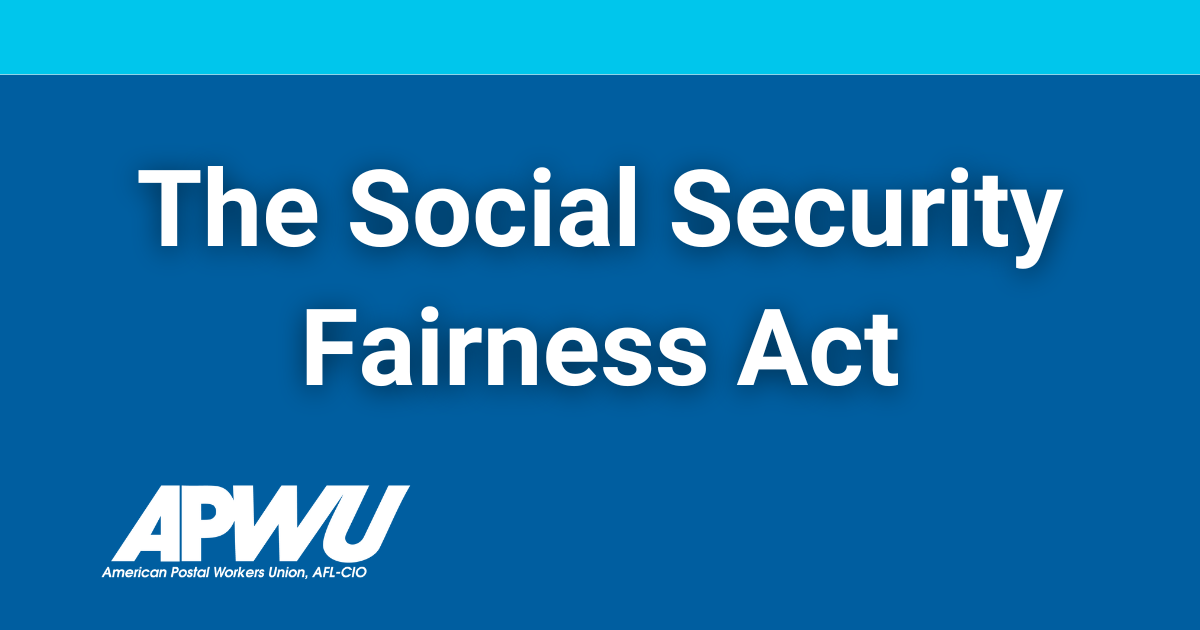CWA Statement Regarding Passage of the Social Security Fairness Act provides a comprehensive analysis of the recently passed legislation. This statement details the Communication Workers of America’s official position, outlining key arguments, addressing specific provisions, and proposing solutions impacting workers’ retirement security. The economic implications, legislative history, and future implications for Social Security are also thoroughly examined.
The CWA’s statement offers a nuanced perspective, considering the potential benefits and challenges for its members across various demographics. It provides a detailed breakdown of the act’s projected costs and benefits, comparing the CWA’s analysis with the positions of other stakeholders involved in the legislation’s passage. This detailed examination aims to provide clarity and inform the ongoing discussion surrounding Social Security reform.
CWA’s Statement on the Social Security Fairness Act: CWA Statement Regarding Passage Of The Social Security Fairness

The Communication Workers of America (CWA) issued a statement regarding the passage of the Social Security Fairness Act, outlining their position, concerns, and recommendations. This statement reflects the union’s deep commitment to protecting the retirement security of its members and advocating for a robust and equitable Social Security system.
CWA’s Official Position, CWA Statement Regarding Passage of the Social Security Fairness

The CWA’s statement expresses strong support for the Social Security Fairness Act, emphasizing its potential to improve the retirement security of many workers. Key arguments centered on correcting historical inequities in the system, particularly for those who entered the workforce later in life or experienced career interruptions. The CWA specifically addressed provisions that eliminate the penalty for those who delayed receiving Social Security benefits due to caring for a family member, a common scenario among their members.
The union proposed further reforms, including strengthening benefits, expanding coverage, and ensuring the long-term solvency of the system through progressive taxation adjustments and addressing tax loopholes exploited by high-income earners. Their solutions are aimed at strengthening the system and expanding benefits to adequately address the rising costs of living in retirement.
Impact on Workers

The Social Security Fairness Act is projected to have a significant positive impact on CWA members, particularly women and those who took time off for caregiving responsibilities. For example, a female CWA member who delayed retirement to care for an aging parent would receive substantially higher benefits under the act than under the previous system. Conversely, workers who didn’t experience such interruptions would see a smaller, but still potentially beneficial, increase in their retirement income.
The CWA’s statement on the Social Security Fairness Act passage is significant news for retirees. It’s a welcome development, offering much-needed relief, and a stark contrast to the lighter news that Martin Short hosts the final SNL of 2024 with musical guest Hozier! This positive development for seniors hopefully signals a broader commitment to social welfare programs, mirroring the celebratory spirit of the SNL finale.
The act directly addresses retirement security concerns for CWA members by mitigating financial penalties associated with career breaks for family care. However, concerns remain regarding the long-term sustainability of the system, even with the act’s passage. Addressing these concerns requires ongoing advocacy and engagement to ensure the system remains robust and capable of meeting the needs of future generations.
Economic Considerations
The CWA’s economic analysis suggests that while the Social Security Fairness Act increases immediate benefits, it requires careful consideration of the long-term financial sustainability of the Social Security system. The union acknowledged the increased costs associated with the act but argued that these are outweighed by the social benefits of ensuring a dignified retirement for all workers. Their economic arguments are primarily based on the principle of fairness and equity, advocating for a system that adequately supports workers after a lifetime of contributions.
They support progressive tax adjustments and closing tax loopholes for high-income earners as key components of maintaining long-term solvency.
| Category | Projected Costs (CWA Estimate) | Projected Benefits (CWA Estimate) | Net Impact (CWA Estimate) |
|---|---|---|---|
| Increased Benefits | $X billion annually | Improved retirement security for millions | Positive social return on investment |
| Administrative Costs | $Y million annually | Streamlined benefit processing | Minor increase in efficiency |
| Long-Term Sustainability | Requires further funding mechanisms | Increased worker contributions, closing tax loopholes | Requires ongoing legislative action |
Legislative Context
The CWA’s statement detailed the legislative journey of the Social Security Fairness Act, highlighting the years of advocacy and coalition-building that led to its passage. Key political actors, including specific senators and representatives, were identified based on their support for or opposition to the act. The CWA compared their position with that of other relevant stakeholders, such as AARP and other labor unions, noting broad consensus on the need for reform but some differences on specific approaches.
The timeline presented by the CWA tracked the bill’s introduction, committee hearings, floor debates, and eventual passage, emphasizing the significant hurdles overcome to achieve this legislative victory.
Future Implications

The CWA anticipates that the Social Security Fairness Act represents a crucial step toward ensuring a more equitable and sustainable Social Security system, but recognizes that ongoing advocacy is essential. Their proposed strategies include continued engagement with lawmakers, public education campaigns, and coalition building with other organizations committed to social security reform. The union anticipates further legislative action will be needed to address long-term funding challenges and to expand benefits to keep pace with rising living costs.
The CWA’s statement indicates potential challenges include securing adequate funding for the expanded benefits, navigating political opposition to further reforms, and maintaining public support for the system.
- Potential challenges: Securing long-term funding, navigating political opposition, maintaining public support.
- Potential opportunities: Enhanced retirement security for millions, increased public trust in the system, setting a precedent for future reforms.
In conclusion, the CWA Statement Regarding Passage of the Social Security Fairness Act presents a thorough and insightful examination of the legislation’s impact on workers and the future of Social Security. By meticulously analyzing the economic considerations, legislative context, and potential future implications, the CWA provides a valuable resource for understanding the complexities of this crucial social program. The statement’s emphasis on worker well-being and long-term system sustainability underscores the importance of ongoing dialogue and advocacy surrounding Social Security reform.
User Queries
What specific provisions of the Social Security Fairness Act did the CWA address in its statement?
The CWA’s statement celebrating the Social Security Fairness Act’s passage highlights a significant victory for workers. This positive news, however, is unfortunately juxtaposed with the recent passing of a prominent figure in the music world; sadly, news reports confirm that Amen frontman Casey Chaos has died. Returning to the CWA’s announcement, the improved social security benefits will undoubtedly impact many lives positively.
The CWA statement likely addressed provisions related to spousal benefits, survivor benefits, and potentially changes to the retirement age, depending on the specific act’s content. The exact provisions will need to be referenced from the official CWA statement.
How does the CWA’s position compare to other stakeholders involved in the legislation?
This requires reviewing the CWA’s statement to see how their perspective differs from that of other groups, such as employer organizations, think tanks, and other labor unions. The comparison would likely focus on differing interpretations of the act’s impact on workers and the long-term financial health of Social Security.
What are the CWA’s proposed strategies for advocacy and engagement concerning Social Security moving forward?
The CWA’s statement would Artikel their future advocacy plans. These might include lobbying efforts, public awareness campaigns, and collaborations with other organizations to influence future legislative actions related to Social Security.
